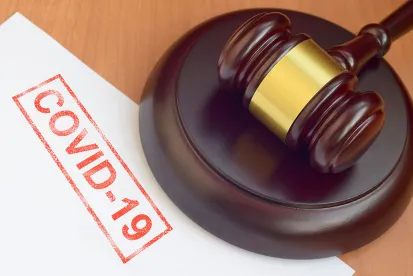The Department of Justice made a major announcement last week that demonstrates that it is serious about finding those who defraud various COVID-19 relief programs and holding them accountable to the fullest extent of the law.
Over the course of the last three months alone, working in concert with numerous law enforcement partners, including the FBI and various Offices of Inspector General, DOJ brought more than 700 law enforcement actions of one kind or another. Criminal charges were filed against 371 defendants, 119 of whom pleaded guilty or were convicted at trial. Courts imposed more than $57 million in restitution. One hundred seventeen civil cases were filed, resulting in more than $10 million in judgments. Forfeitures exceeding $231 million were secured.
Notably, 63 of the defendants had alleged connections to violent crime and 25 had connections to transnational criminal networks.
Among the programs targeted by fraudsters were the Small Business Administration’s Paycheck Protection Program and Economic Injury Disaster Loan Program, the Emergency Rental Assistance Program, the IRS Employee Retention Credit Program, and there was considerable fraud with respect to pandemic-related healthcare billing.
Furthermore, two additional COVID-19 Fraud Enforcement Strike Forces were announced, one at the U.S. Attorney’s Office for the District of Colorado and the other at its counterpart in New Jersey, bringing the total number of such strike forces to five.
Since the crackdown on pandemic-related fraud began in 2021, $1.4 billion in stolen funds have been seized and more than 3,000 defendants have been charged criminally all across the country.
According to the Acting Director of COVID-19 Fraud Enforcement, “…this announcement is not a victory lap. Our mission is not complete…the Justice Department…is committed to using our criminal, civil, and forfeiture tools to hold these fraudsters accountable.”
This is a warning to individuals and companies that committed fraud, or have reason to believe that fraud may be alleged, that DOJ may, metaphorically or literally, knock on their door any day now. So, if those who have reason to be concerned have not yet engaged counsel to help craft the best possible defense given the applicable facts and law, the time to do so is now.




 />i
/>i

